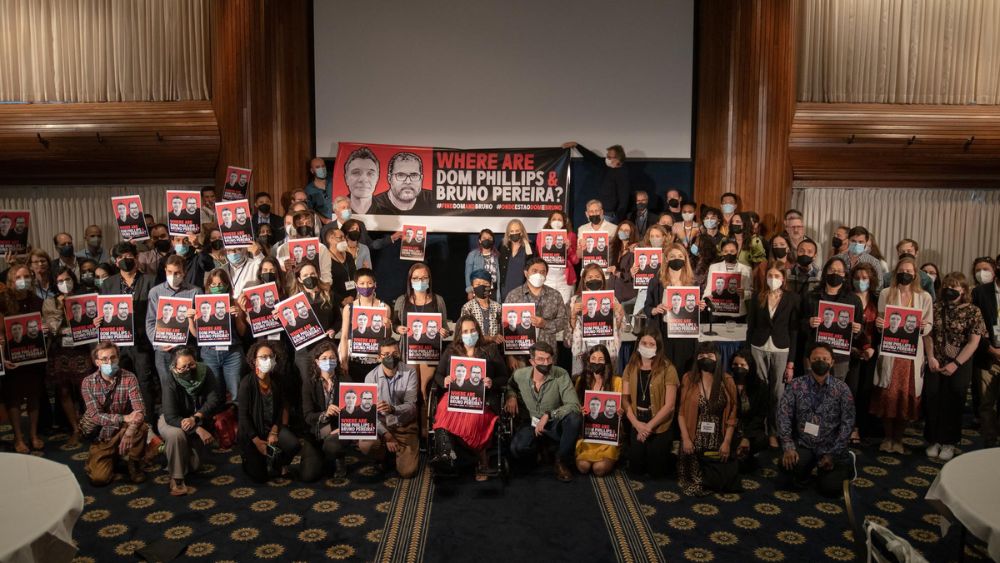Pulitzer Center Update June 17, 2022
In the Amazon, Journalists Will Not Be Intimidated

Following the Trail of Dom Phillips and Bruno Pereira
We are heartsick at reports from Brazilian authorities that a suspect in custody has confessed to the murders of journalist Dom Phillips and Indigenous expert Bruno Pereira, and that he has taken them to the location of what are believed to be the victims’ remains.
Phillips and Pereira had disappeared on June 5 while reporting in the Javari Valley, a remote region of the Amazon near Brazil’s border with Peru and Colombia known for the illegal exploitation of Indigenous lands, drug trafficking, and violence. It is a place where government authorities are too often willing to look the other way.
News of their disappearance broke as we were meeting in Washington, D.C., with nearly 100 climate journalists from around the world, many of them focused on the critically important rainforest issues that had become the life’s work of Pereira and Phillips, the latter a friend and colleague to a number of us in the room.
With the help of our Amazon Rainforest Journalism Fund Advisory Committee, under the leadership of The Guardian's Global Environment Editor Jonathan Watts, we put out an emergency call for proposals for reporting on the Javari Valley. Within 24 hours we had received 38 proposals from journalists and news organizations around the world. By Friday we had settled on grants for four significant reporting initiatives, led by National Geographic, Sky News, and organizations based in Brazil: Agência Pública and Repórter Brasil.
Funding for these reporting projects comes from our existing Rainforest Journalism Fund, with additional new support from the Knight Science Journalism Program at the Massachusetts Institute of Technology and from the Alicia Patterson Foundation, the journalism organization that had funded Phillips’ work over the past year. We’re grateful to them both for joining this cause and to the work of Watts and his fellow advisory committee members.
“We hope these funds help journalists investigate the murder of Dom and Bruno, hold authorities accountable, and continue Dom’s important work in the rainforests,” said Watts.
The message to those who attacked Phillips and Pereira is clear: Journalists will not be intimidated from pursuing this story, wherever it leads.

Impact
Grantee Chris Arsenault's Pulitzer Center-supported article “Crude Bargain” has won an RTDNA Canada Award in the Feature News category. The story tracks the causes and effects of foreign investments in offshore oil drilling on development in Guyana. The article was part of Arsenault’s project Inside Guyana’s Struggle To Avoid the Resource Curse, a series of reports for the CBC and the Thomson Reuters Foundation on the oil boom’s transformation of the country’s politics, economy, and environment.
“Crude Bargain” is also on the longlist for an Environmental Impact Award from One World Media, a U.K. nonprofit that recognizes stories of the Global South that “break through stereotypes, change the narrative and connect people across cultures.”
This message first appeared in the June 10, 2022, edition of the Pulitzer Center's weekly newsletter. Subscribe today.



